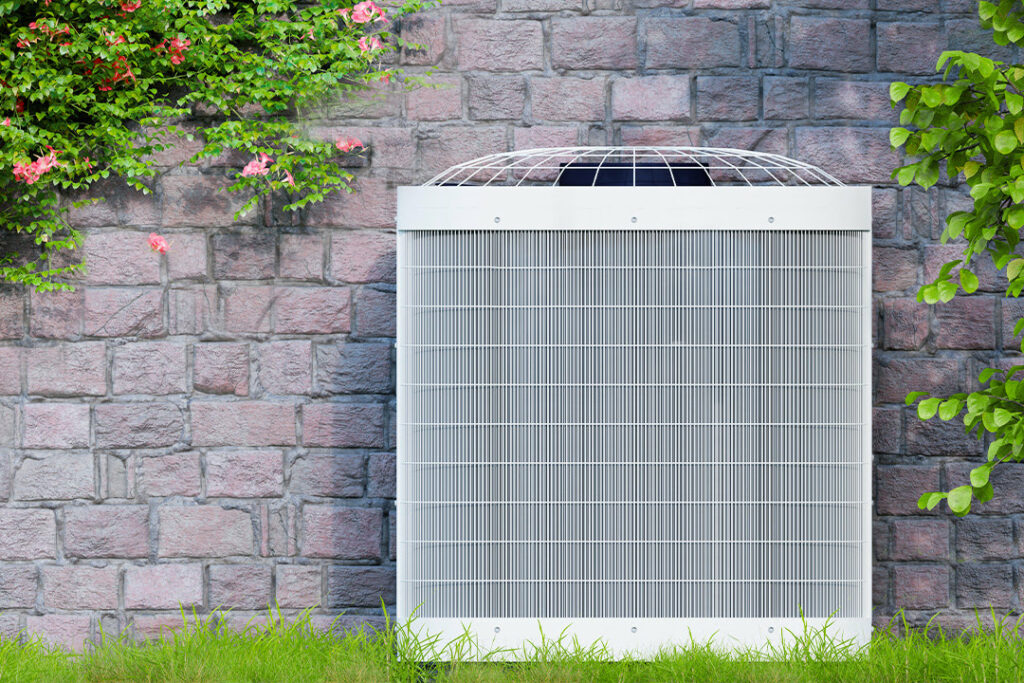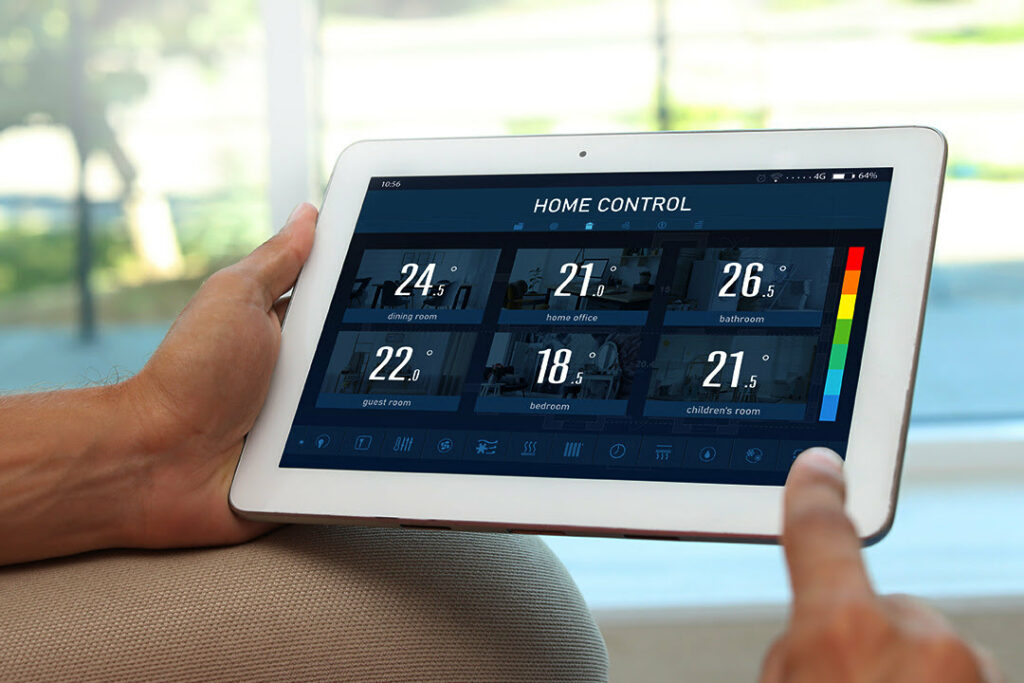Home Comfort, Humidifiers, HVAC
Temperature isn’t the only factor you should consider trying to make your home comfortable—humidity is an important factor as well. The level of ...

Temperature isn’t the only factor you should consider trying to make your home comfortable—humidity is an important factor as well. The level of water vapor in your home’s air actually has a major impact on how you feel. Humidity can even affect your risk of colds, flus, and other infections!
Fortunately, controlling your home’s humidity is easy to do—and Cross Heating & Air Conditioning is here to show you how. As home comfort leaders in Waterloo, Listowel, and Hanover, we know all about the link between comfort and humidity in Ontario’s cold, dry winters. Let us teach you how to enjoy more comfort at home in just a few simple steps.
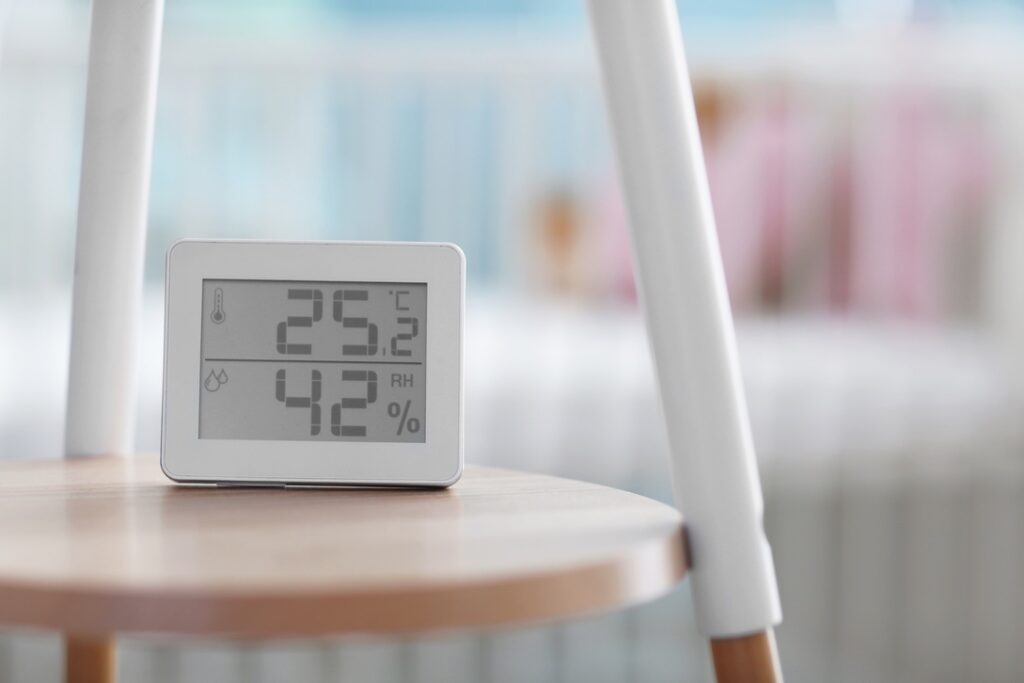
How Humidity Affects Your Comfort
To be truly comfortable at home. the amount of moisture in your air should be at a specific level depending on the indoor air temperature. Air that isn’t humid enough will quickly become uncomfortable—you might notice your skin getting dry or your throat getting sore and scratchy.
Too Little Humidity Can Cause:
- Dry Skin
- Dry eyes
- Sore throat
- Static electricity buildup indoors

However, too much humidity isn’t a good thing either. If the air in your home has too much moisture, you’ll probably start to feel sticky and clammy before too long. This is why stand-alone humidifiers in specific rooms aren’t as good as using a humidifier connected directly to your HVAC system (we’ll talk more about that later in this piece, so keep reading!).
Too Much Humidity Can Cause:
- Clammy skin as sweat cannot evaporate properly due to high moisture
- Dust mites
- Mold growth
- Difficulty breathing (particularly for people with respiratory problems)
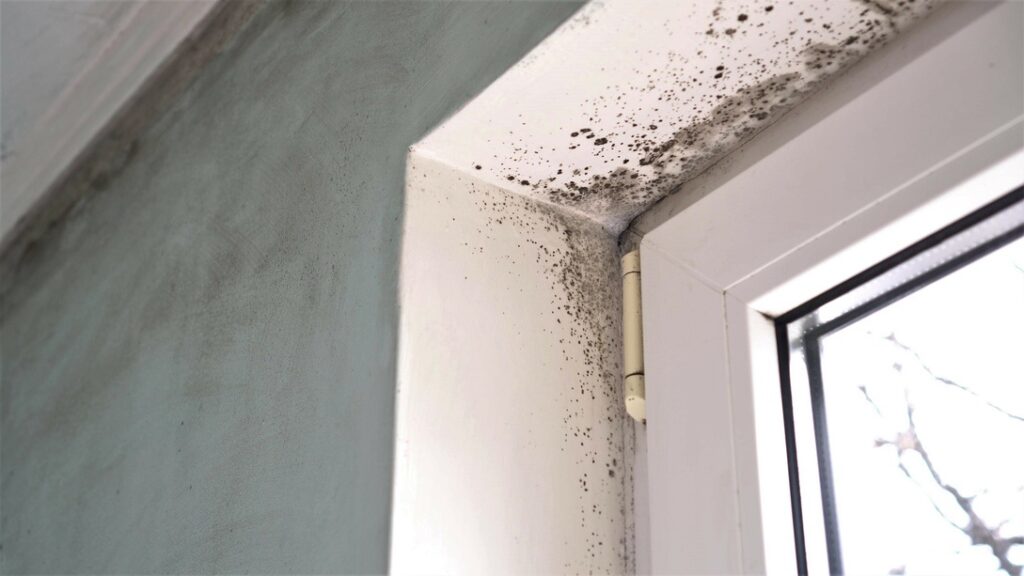
How Humidity Can Affect Your Health
Low humidity can weaken your body's defenses against colds, flu, and infections by drying out the mucous membranes in your nose and throat. These membranes are an important part of your immune system, as they help to trap harmful particles like bacteria and viruses and remove them from your body. Dry mucous membranes can crack and become irritated, making it easier for germs to enter your body and cause infection.
Low humidity can also make it more difficult for your body to clear mucus from your airways, which allows cold and flu viruses to remain in your system for longer periods of time. This increases your risk of getting sick and makes it more likely that you will experience symptoms for a longer period of time.
How to Improve Your Home’s Humidity
As we mentioned earlier, improving your humidity isn’t as simple as buying a standalone humidifier from your local home improvement store. Humidifiers, like other pieces of HVAC equipment, should be carefully sized for the space where you’re using them—so these models make it easy to overdo it and make your home too humid if you’re not careful.
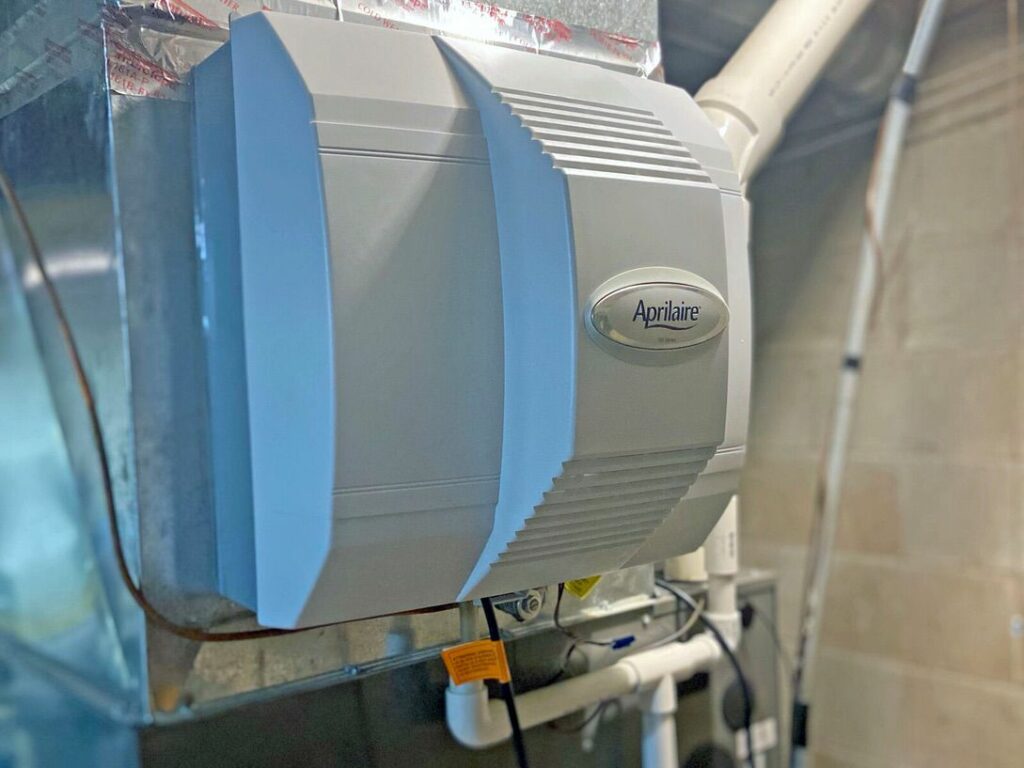
Why We Recommend Whole-Home Humidifiers vs. Standalone Models
Whole home humidifiers are designed and installed to work with your HVAC system, which allows them to ensure the correct humidity levels throughout your entire home. In the vast majority of cases, these systems prove to be more convenient, consistent, and efficient than standalone models.
Other advantages of whole-home humidifiers include:
- No need to refill water: whole home humidifiers are connected to your home's water supply, so you don’t need to refill the water tank like you do with standalone models.
- Reduced maintenance: with a whole home humidifier, you only need to maintain one unit, rather than multiple standalone humidifiers.
- Possible zone control: if your HVAC system is partitioned into different zones, you can control the humidity in different parts of your home by simply adjusting your thermostat—instead of moving multiple standalone units around with you.
The Cross Heating & Air Conditioning Home Humidity Checklist
Here’s a list of steps we recommend you take to ensure a comfortable amount of humidity in your indoor air:
- Use a humidifier: as mentioned above, we recommend installing a whole-home humidifier in your HVAC system to ensure proper moisture throughout your home.
- Keep indoor plants: plants naturally release some moisture into the air through a process called transpiration, which can help to improve humidity levels.
- Take shorter showers: long, hot showers can remove moisture from the air, so try to take shorter, cooler showers to minimize this effect.
- Seal air leaks: checking your home for air leaks and sealing them can help to prevent dry outdoor air from entering your home.
- Use a hygrometer: measuring the humidity levels in your home with a hygrometer can help you to determine whether you need to add moisture to the air and monitor the effectiveness of your humidity control measures.
If purchasing a hygrometer and placing it in your home seems like too much work, just contact us! Our experienced comfort techs will be happy to provide you with a plan to optimize your humidity levels.
The Easiest Way to Improve Your Home’s Humidity
All of the steps above can be useful for creating the right level of humidity in your home, but the single best way is to invest in a high-quality whole-home humidifier and have it installed by our professionals. We’ll make sure your HVAC system is set up to add the perfect level of moisture to your air as well as making it the correct temperature.
For a free quote on whole-home humidifier installations or other HVAC projects, contact Cross Heating & Air Conditioning and speak with a member of our team. We’ll provide an accurate, no-obligation quote based on your home’s specific needs.


